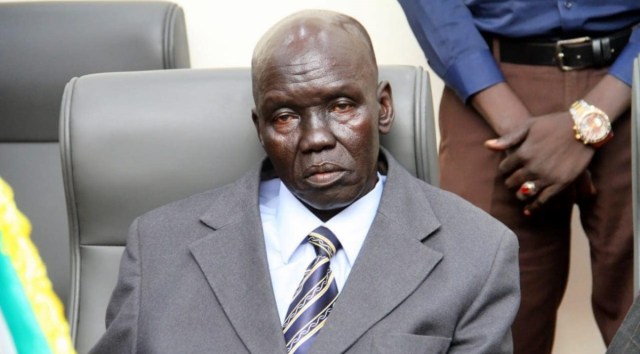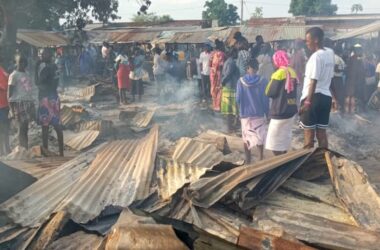By Ephraim Modi Duku Sokiri
Kajo-Keji County Commissioner has urged both the state and national gov’ts to urgently intervene to resolve a seemingly border encroachment by Ugandan nationals.
Last week, the Executive Chief of Bamurye Boma, Kangapo II Payam of Kajo-Keji County, Mr. Gonyi Anthony reported that groups of Ugandans from Moyo and Yumbe districts had invaded the area.
The Ugandan nationals allegedly entered Bamurye, an area in Kajo-Keji, along the border with Uganda, and raised their flag, claiming ownership of the land.
According to the Executive Chief, the encroachers came in huge number, armed with spears and arrows, creating fear among the residents.
This latest incident prompted the county commissioner Phanuel Dumo to engage the cross-border invaders in a diplomatic approach to ensure they return to their places of origin.
He however said the current situation requires the intervention of the state and national governments, as it involves international boundaries of two countries.
“I just want to tell our people, the Central Equatoria State and South Sudan government that we need more forces to come to our aid so that these forces are deployed along this border,” Dumo said.
He said deployment of forces would prevent similar occurrence in the future.
Mr. Dumo said he would meet the Residence District Commissioners (RDCs) of Yumbe and Moyo, to discuss the matter more detailed.
“We are meeting on Friday with the relevant authorities of these neighbouring districts. I think we will find an amicable solution. We want to find out the people fueling the border issues,” he said.
According to the commissioner, the invaders were ferried to the areas on vehicles by someone famously known as Wajaras Khamis.
“We were told that they were brought by vehicles and at the same time, they came for logging. We met some group of young men, majority of them, from Yumbe, Terego and Maracha districts,” he alluded.
Commissioner Dumo added that the group accepted to leave the area.
“They acknowledged that they are sorry, because it is not their intentions, they were mobilized and told that this is an empty land belongs to Uganda that’s what led them to come and settle,” he said.
One Ugandan national who preferred to remain anonymous said he was manipulated about their mission to the area as they were told to oblige as domestic workers.
“My nationality is a Ugandan; they just brought us here yesterday (Saturday) to serve as domestic workers. I am a student. We are four in number, but I don’t know what exactly is going on,” he said.
“I am not even the family member of these people who stay here, Kasim brought us here.” He added.
Another Yumbe resident who preferred to be identified as Mansur commended the Kajo-Keji county authorities for taking the diplomatic steps to resolve the matter.
He added that he would go back to Yumbe on Sunday.
“I have come here to get a piece of land for farming. I have seen these buildings and the mangoes here wondered who planted them and the construction,” Mansur lamented.
Kajo-Keji County, bordering Uganda’s districts of Moyo and Yumbe to the south and west respectively has been encountering long encroachments since before South Sudan gained independence from Sudan.
South Sudan- Uganda relations
South Sudan and Uganda are neighboring states with strong cultural economic and political ties. They both enjoy relatively strong cultural, political and economic relations.
As South Sudan gains its independence in July 2011, both countries took advantage of increased odds for trade, development and educational exchanges.
According to track records, South Sudan in recent years has emerged as the prime importer of Ugandan goods.
Over 150,000 Ugandan traders operate across the border, generating an estimated $900 million in business.
Following a border dispute that emerged in 2014 between South Sudan and Ugandan, tensions and incidents of violence forced the people of Kajo-Keji, to vacate Moyo district.
South Sudan relies heavily on its neighbors to provide goods such as construction materials and services such as skilled and unskilled labor.
Approximately 1,500 Ugandans work in South Sudan in the construction industry and 1,200 Ugandan professionals are employed with non-governmental organizations, ministries and industries.
Over 100,000 students from South Sudan are currently attending schools in Uganda and thousands more are expected to have pursued undergraduate and graduate education in Kenya and Uganda.
At the same time, many teachers from Kenya and Uganda have entered South Sudan to teach, given the region’s shortage of professionally trained educators.
Nationals from neighbouring countries have undertaken some major positions in the employment sector of South Sudan leaving residents in dismay yearning for occupation.




